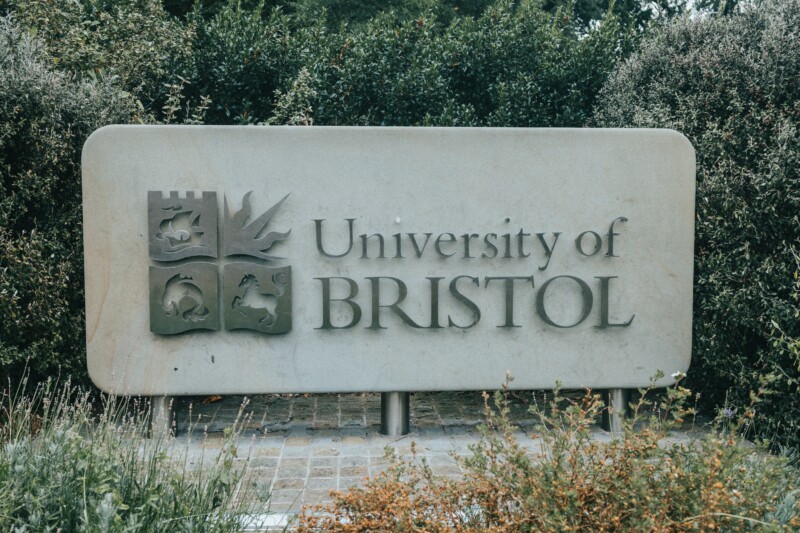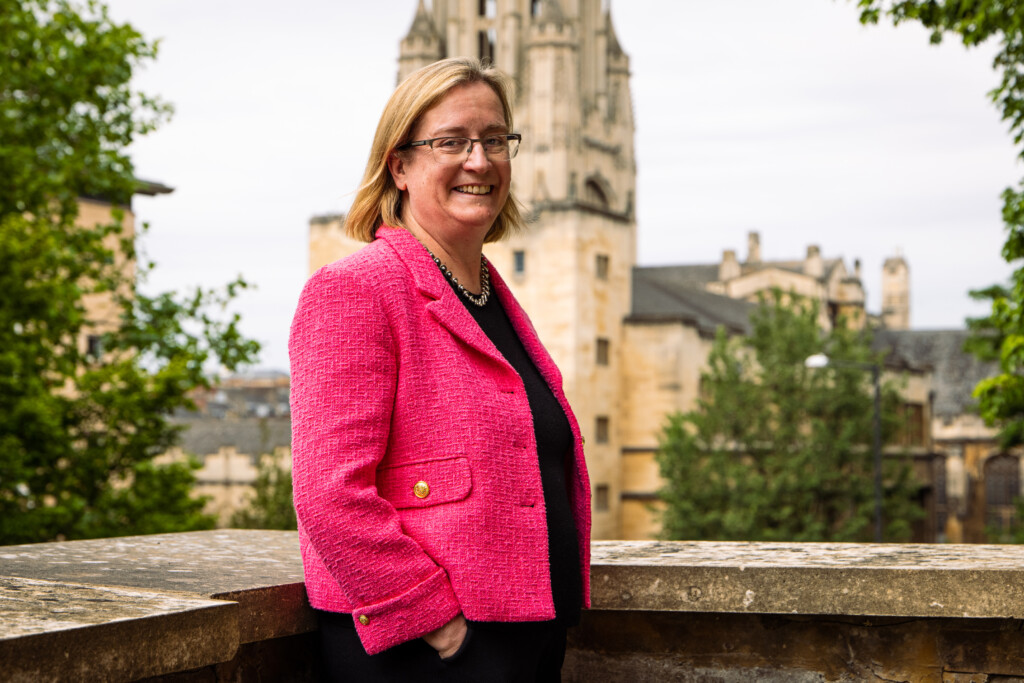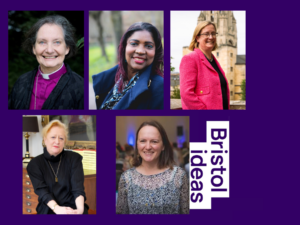The Future University in the Future Bristol

Share this
On 23 April 1908, the journal
While the pledge of £100,000 by the Wills family to support the foundation of a new university is much better known, there were many donations and supporters and interested parties, large and small, that helped Bristol celebrate the receipt of its Royal Charter on 24 May 1909. The new University of Bristol was already a surprisingly large institution for the period, with almost 700 students, male and female. The quick accolade of several Nobel prizes for staff members, such as the mathematician Paul Dirac, cemented the University’s high research reputation, but it continued to have deep local roots and a strong sense that the work done within the University’s walls, whether on medicine or on the production of cheese and cider, should make a positive difference to its communities. This was not just for its Clifton campus staff and students. The Barton Hill settlement was set up around the same time, bringing the University to a community in a part of the city that was, and still is, very deprived.
In comparison to many of the UK’s other greater universities, Bristol is a comparatively young institution. Our foundations remain at the heart of a new strategy for high-quality, broad-based education. Outstanding specialised research and civic engagement will take us forward to our 120th anniversary year and beyond. It has been a privilege to join the University at this time. I have been in post as Vice-Chancellor and President of the University of Bristol for just over a year, and every day I see the complex intersections of our history and our future. Our work in Barton Hill continues and we have advanced research departments leading globally significant discoveries in everything from robotics and environmental and life sciences to digital technologies, quantum, data science and population health. We collaborate with the other universities in our region, as well as with schools, NHS Trusts, charities and businesses based in Bristol and beyond. These collaborations have seen the development of, for example, new materials that will help Airbus make more sustainable airplanes, and ground-breaking projects like the Children of the 90s study, which has followed the lives of families in Bristol for over 30 years, leading to many important health discoveries.
Our students bring a diverse and dynamic population, enriching the cultural and social landscape which helps make the city so special. They bring huge benefits in terms of cross-funding regeneration of de-industrialised or de-retailed areas, breathing new life and vitality into parts of the city that need it. Added to this, more than 100 community and other organisations benefit from the support of thousands of student volunteer hours every year. Many of our students also choose to stay in Bristol once they graduate, creating a valuable, educated and growing workforce to help attract investment and create new opportunities for the region.
But there are challenges for our city and institution, too.
The ability of all of the universities in our region to stay internationally competitive, and to continue supporting a more prosperous and dynamic local economy, is contingent on remaining financially resilient. We need to continue to grow but we also know that Bristol has become one of the most unaffordable UK cities to live in. According to the Office for National Statistics, more than 80 people a week relocate from London to Bristol and Bath, adding to a view that, alongside student number growth, Bristolians are being increasingly squeezed out. To address this, we have been working hard with the council to implement a plan of new purpose-built student accommodation to increase supply in parts of the city where student housing investment is beneficial to the local community, and to relieve pressure on other parts of the housing market. We are also exploring new approaches to integrate student housing with other housing needs, including, for example, via the development of new intergenerational housing.
Beyond the housing crisis, Bristol remains divided in terms of educational outcomes. Progression rates to higher education are particularly telling. In Clifton, one of the most affluent areas of the city, progression rates are 100 per cent. Conversely, in Hartcliffe, only eight per cent of learners are educated to university level. The divide is not simply north/south, however, with disproportionately low levels of progression in many areas of north-west Bristol, including Avonmouth and Lawrence Weston. I believe there is more the University can do to make a difference here.
More broadly, the University has a key civic role to play in several respects, particularly in terms of bringing our expertise to the fore. Bristol is big enough to have every kind of global problem you can imagine, but small enough that high-quality research can inform interventions – and it is possible to see the results of those interventions in near real time. This is unique, this is exciting and this is what we must do more of. We are fortunate to be based in a city that is willing to work with us to put our research into action.
Delivering on a plan for our shared future.
Crucially, our strategy recognises that if we are truly going to help make a difference, we must do it collaboratively, inspired by our commitment to quality and excellence and in the way in which we work in partnership, within and outside the University. The commitment to being a global civic institution forms the third pillar in our strategy and is the most striking development from previous plans.
We are determined to open up the benefits of a Bristol education to more local students, with an ambitious target in the new University strategy of 15 per cent of all learners coming from the local area by 2025 (up from six per cent in 2021). Such a move will help to build on recent initiatives like the radical Bristol Scholars programme which guarantees all Bristol schools up to five places at the University for disadvantaged students. Through this initiative, the school assessment of student background and potential, rather than A-Level grades, are the dominant entry criteria.
Helping to provide a supportive environment for innovation in our region is another key civic priority. Throughout the last decade, we have engaged extensively with public and private sector partners to develop research and innovation themes, provide high-quality infrastructure, skills and finance, and identify local growth and regeneration opportunities. Fortunately, and not accidently, Bristol is already home to one of the UK’s fastest-growing and most significant tech clusters. It boasts one of the highest business start-up and survival rates, enjoys globally recognised strengths in sectors such as aerospace, zero carbon and the creative industries, and is renowned for innovation in AI, 5G, semiconductors, quantum technology, cyber security, robotics, haptics and data science.
We aim to help our city region secure its future in these valuable sectors, and we relish the expectation and imperative that we will serve as a key innovation engine within the local area – a vital source of talent, skills, ideas, technologies, expertise and partnerships. Our developing Temple Quarter Enterprise Campus, central to the emerging Temple Quarter regeneration programme, provides just one example of this defining commitment.
Opening in 2026, the building has been designed from the ground up to support challenge-based research and education. The activities it will host will be co-created, co-developed and co-delivered with our partners. This will be a place to do things differently. We will inspire and equip our students with the skills to survive in a changing world. Alongside our academic researchers, social scientists, industrial technologists and entrepreneurs, they will work and partner with local businesses, global organisations and communities to solve real-world problems. From the future of work to the impact of cutting-edge technology on society, Temple Quarter will be a new destination for collaboration, innovation and opportunity that will benefit everyone. A new public realm will provide a hub for local communities, with open and welcoming spaces to socialise, shop and collaborate with others. In the evenings, at weekends and during university holidays, local people are invited to take part in lifelong learning programmes, social and cultural events, festivals and research activities.
This is an exciting moment. When I think of our strategy and our new campus in 2030, I think of how it might help a young person in Bristol, elsewhere in the UK or internationally. They are, perhaps, 11 or 12 years old today. They’ve only known a digitally enabled world (and are used to using technology to enhance their education in novel ways that create new opportunities). They have only known a world that has only really just woken up to the dangers of climate change. They have only known a world where the political, local and geopolitical have become more and more divided. We have a responsibility to make a place for them at our University and in our city, ensuring we help them create an equitable future for all.

Evelyn Welch is Vice Chancellor of the University of Bristol and a scholar of the Renaissance and Early Modern Period. Prior to her appointment at the University of Bristol, she was a Professor of Renaissance and Senior Vice President (Arts & Sciences) at King’s College London.
This article appears in Bristol 650: Essays on the Future of Bristol, a book bringing together essays from over 30 contributors, addressing some of the challenges the city faces and sharing ideas about how we might meet them. From dealing with the past, the future of social care, culture and housing to building a city of aspiration, the book looks to promote learning about the future of Bristol and encourage new ideas to come forward.
Free copies of Bristol 650: Essays on the Future of Bristol will be available at selected Festival of the Future City events in October 2023, or you can find articles featured in the book at bristolideas.co.uk/bristol650book.
